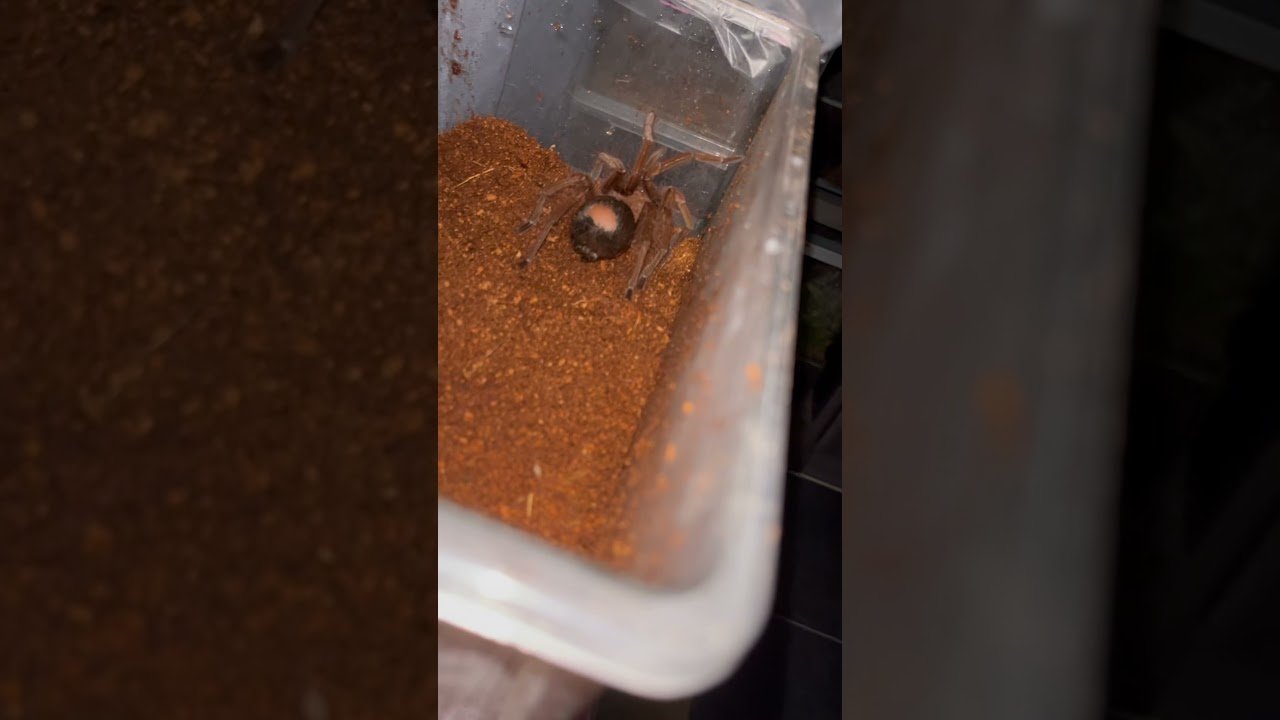Are you worried about whether your Goliath Birdeater is okay after going through all that stress? It’s normal to feel concerned when our pets seem distressed. Let’s dive into how you can ensure your furry friend is feeling better. #shorts
Is my Goliath Birdeater ok after all that stress? I feel bad 😞 #shorts
Introduction
Hey there! So, you recently rehoused your Theraphosa apophysis, the Goliath Birdeater, and now you’re feeling a tad bit worried about how it’s handling all that change. Don’t sweat it! Let’s dive into the details and ensure your eight-legged friend is doing just fine.
Checking on Theraphosa apophysis rehoused temporarily
When you first got your Goliath Birdeater temporarily rehoused, it’s normal to feel concerned about its well-being. However, remember that these creatures are quite resilient and can adapt to new environments fairly well.
Ensuring moisture in the enclosure to prevent drying out
Ensuring that the enclosure maintains the right level of moisture is crucial in preventing your spider from drying out. Try misting the enclosure lightly every few days to mimic the humidity levels they are accustomed to in the wild.
Spider kicking hairs as a normal behavior
If you notice your Birdeater kicking hairs after the rehousing, don’t panic! This is a normal defense mechanism for them, especially when they feel stressed or threatened. Give it some space, and it will settle down soon.
Monitoring well-being in the new enclosure
Keep a close eye on your spider’s behavior in the new enclosure. Look out for signs of stress like excessive hiding, lack of appetite, or unusual movement patterns. If you notice anything concerning, consult with an expert for guidance.
Planning to finalize enclosure with correct measurements
Once your Goliath Birdeater settles in, it’s essential to finalize the enclosure with the correct measurements. Ensure it has enough space to move around comfortably while also providing ample hiding spots for security.
Using a plastic cover to retain moisture
To retain moisture levels effectively, consider using a plastic cover over part of the enclosure. This will help create a humid microclimate that mimics the spider’s natural habitat, ensuring its well-being and comfort.
Considering upgrading enclosure materials
If you feel that the current enclosure materials may not be ideal for your Birdeater, consider upgrading to a more suitable option. Opt for materials that are easy to clean, provide adequate ventilation, and promote a healthier environment for your spider.
Ensuring the spider’s comfort and health in the new setup
Above all, prioritize your spider’s comfort and health in the new setup. Regularly assess the enclosure conditions, temperature, humidity levels, and make adjustments as needed to create a safe and stress-free environment for your Goliath Birdeater.
Conclusion
In conclusion, while rehousing your Goliath Birdeater may seem daunting at first, with proper care and attention to detail, you can ensure that your spider transitions smoothly into its new home. Remember, a little bit of stress is normal, but by following these guidelines, you can help your spider thrive in its new environment.
FAQs
-
How long does it take for a Goliath Birdeater to adjust to a new enclosure?
Goliath Birdeaters typically take a few days to a couple of weeks to adjust to a new enclosure. Give them some time and space to acclimate.
-
Is it normal for my spider to refuse food after being rehoused?
Yes, it’s normal for spiders to refuse food temporarily after being rehoused due to stress. Monitor their appetite and offer food when they seem more settled.
-
Should I be concerned if my spider is spending a lot of time hiding after the rehousing?
It’s common for spiders to hide more after being rehoused as they get used to their new surroundings. As long as they eventually come out to explore, there’s no need to worry.
-
Can I handle my Goliath Birdeater to check on its health after rehousing?
It’s best to avoid handling your Goliath Birdeater, especially after rehousing, as it can cause additional stress to the spider. Observe them from a distance instead.
-
What should I do if I notice my spider showing signs of distress in the new enclosure?
If you observe signs of distress such as excessive webbing, erratic behavior, or lethargy, consult with a knowledgeable arachnid enthusiast or a vet specializing in exotic pets for guidance on how to best assist your spider.
